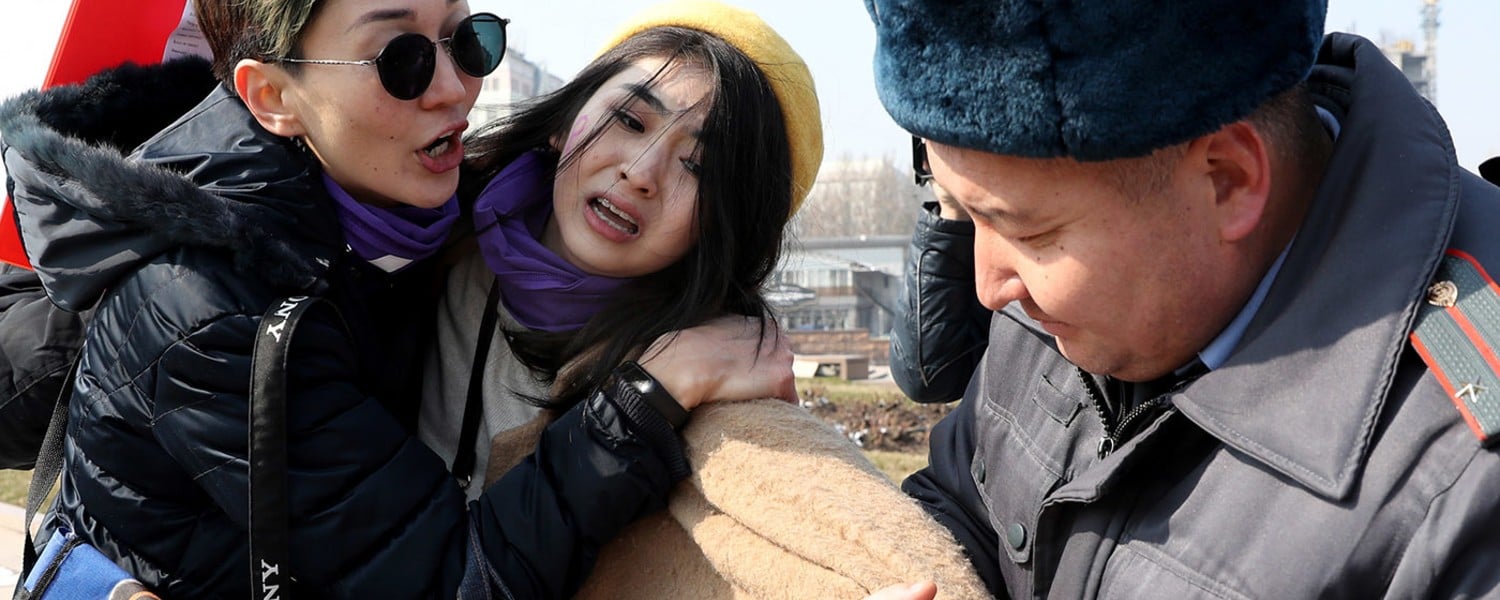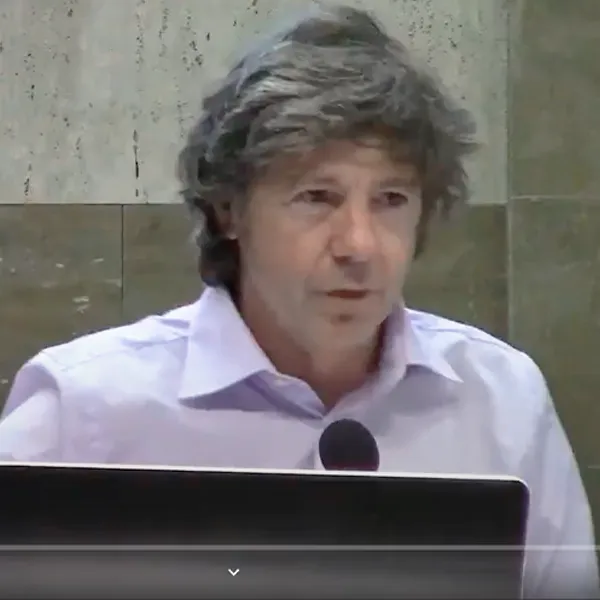On this year’s 8th of March the women of Kyrgyzstan, or to be more precise, the feminists of Bishkek, the capital of the Central Asia country, decided to march for their rights. The international press reported that there were some attackers that engaged the peacefully marching women . The police intervened and … arrested the women! I will now talk to Guliaim Greeny, a feminist living in Bishkek who was at the feminist march and witnessed the events.
First of all, tell us more about feminism in Bishkek. A little bit about its history and evolution.
I am a curator of Bishkek Feminist Initiatives. We have been organizing the Solidarity march for 4 years and this year is the 5th time we organized it. We are the only organization which identifies itself as feminist.
As you know, we were part of the Soviet Union, and “feminism” came from the Soviet Union together with the Soviet government. In the early years, rather radical measures were taken to “liberate the women of the East,” meaning they were forced to study, work, and remove the veil. Women then received the right to vote, to work, to take maternity leave, to abortion, access to public kindergartens and nurseries, and also canteens appeared. In sovereign Kyrgyzstan, according to the constitution, we have equal rights and opportunities, but in reality we understand that the rights are either violated, or they have to be defended. Our organization is the only one that promotes feminist activism. We have about 80 organizations that work in the field of women’s rights. They work to prevent violence against women, or protect women’s rights, or promote women’s rights at different levels. This does not mean that all these organizations are feminist, often they are even quite patriarchal, but in the end we all have one goal, the promotion of women’s rights, and for this purpose we have joined together in a network against violence towards women. This network is very active: Organizations within it cooperate, help and support each other.
Guliaim Greeny – Facebook account
When did you decide to become involved in feminism and why?
I became involved in feminism in 2013. Before that, I always knew that I was not happy with certain rules in our culture and society, but I could not give it a name, simply because I did not know what it was called. When I found out that we have Bishkek feminist initiatives, my enthusiasm knew no bounds. I thought that in our country this is impossible. At the very first meeting I went to, I was in love with everyone. I met women who thought the same way I did. I still remember the meeting in detail. Yes, I didn’t know the theoretical part, I hadn’t read “The Second Sex”, I didn’t know to which feminism current I belong. I just knew and felt that I was equal to men and women, but not everyone shared this opinion.
Until last year, I was friends with this organization, volunteered, and attended events. In parallel with this, I held my own events and kept a blog on feminism and women’s rights in Kyrgyzstan. So many began to recognize me as an ardent feminist. Last year, the previous BFI team broke up and I was asked to assemble a new one and continue the work of the organization.
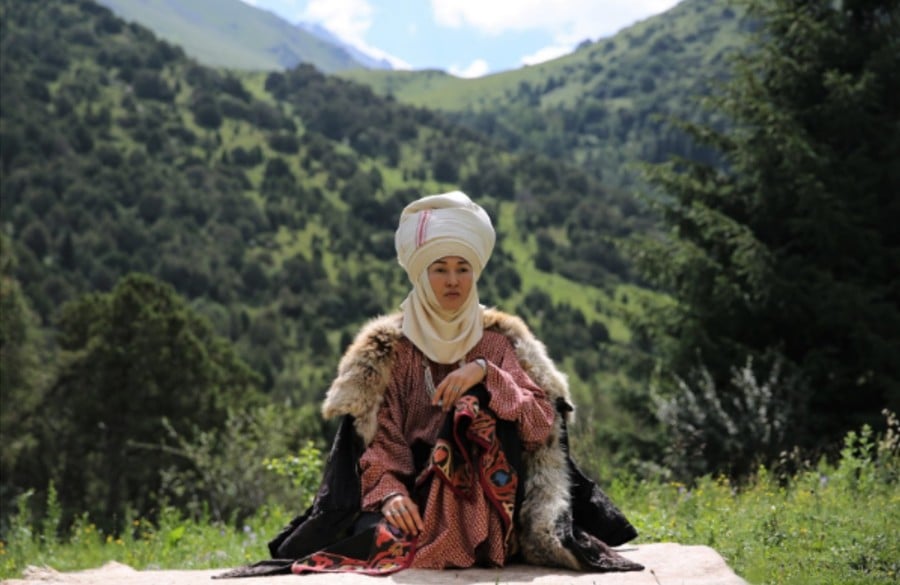
Tell us please what happened yesterday, on the 8th of March?
Bishkek Feminist Initiatives along with other Bishkek organizations that share the ideas of feminism organize a march of solidarity every March 8th. Like the preceding 4 years, we had to take it along the traditional route. A week before the event, mass events were banned in that area due to Coronavirus. We knew that this was just an excuse and an attempt to ban women from holding a solidarity march. In Kyrgyzstan, not a single case of Coronavirus infection has been recorded and the ban does not apply to government events, quarantine has not been introduced in schools, and no measures are being taken to prevent an epidemic other than a ban on peaceful assembly. We decided not to violate the judgment and to hold the march in another area where there was no ban. We arrived at the appointed place half an hour before the start of the event. We began to inflate balloons, hand out bandanas, and people began to gather. We saw that there were policemen around and were sure that they were there in order to ensure the safety of the event. I noticed that young people were gathering in the distance. I went in their direction and realized that there were already about 20 of them, and there were all men, dressed in all black clothes, caps and masks, or with balaclavas on their faces. I warned them that if they rioted, it would be illegal. But they turned away and did not answer me. Then I went to the police, one of them turned out to be the captain of the police, who in theory was supposed to ensure order, but the police refused to react and simply said that this was a public space and everyone had the right to stand wherever they wanted.
Literally moments later, these men ran up to the march and began to scatter the participants, kick, tear posters, and hit several people. A minute later, masked men began to leave and a police detachment approached, which detained the march organizers, the participants, and journalists. Also in the crowd were several people, women and a man who shouted that we were gay and shameless and ordered the police to detain us. After we were all detained, we were taken to the police department and kept for about half an hour on the street in a cordon and no one told us why we were detained.
After all the violence in the street we were taken to the police building and the organizers were taken out and divided into different offices. We were not allowed lawyers. I was held for more than an hour and a citation was drawn up for disobeying a police demand to disperse, although there was no such requirement, and even if there were, it would be illegal. As a result, I spent a little more than three hours in the police building. They were forced to let us out, because by law they have no right to keep us for more than three hours.
Why do you think the police acted so brutally toward the protesters?
We march every year. Every year more and more people join. Last year, the march was very inspiring. According to various estimates, there were about 400 people. For a feminist march, this is a lot. There were our friends, partners, representatives of international organizations, civil servants, and of course, many young women who were interested in feminism and women’s rights. The march sparked heated debate in our society. First of all, everyone in Kyrgyzstan finally heard the word feminism. This was already a victory for us. There were both positive and negative reviews, and even the women’s movement split. But the most heated discussions were caused by the rainbow flags that were present on the march from LGBT organizations. Then we already realized that this year we will be very much hindered by both the authorities and ultra-right and religious groups. Therefore, we worked out a safety plan in advance, including several plans and routes. Despite this, everything happened as I told you.
Those who planned this had the goal to discourage us from going out again. They wanted to teach us a lesson, to intimidate us. They realized that we know our rights and they did not succeed in detaining us legally. Then they decided to solve this issue in a primitive way, by physical strength and intimidation, so that it would be disgraceful in the future. We cannot say exactly who was the director of this theatrical production, but it was very poorly thought out and poorly organized. If they really wanted to portray everything as an attack by nationalists, then they had to be detained at least for the sake of appearance. But despite the fact that the press service of the police claims that both sides were detained, this is not so. Nobody saw them detain even one guy in a mask, but dozens and hundreds of photos and video evidence show women being detained. Also, all the videos show masked policemen and men walking nearby, masked men destroying our posters, attacking us, shouting, scattering things, and at the same time, the police are simply watching. This means that the police knew that this attack was going to happen and they had an order not to disturb them.
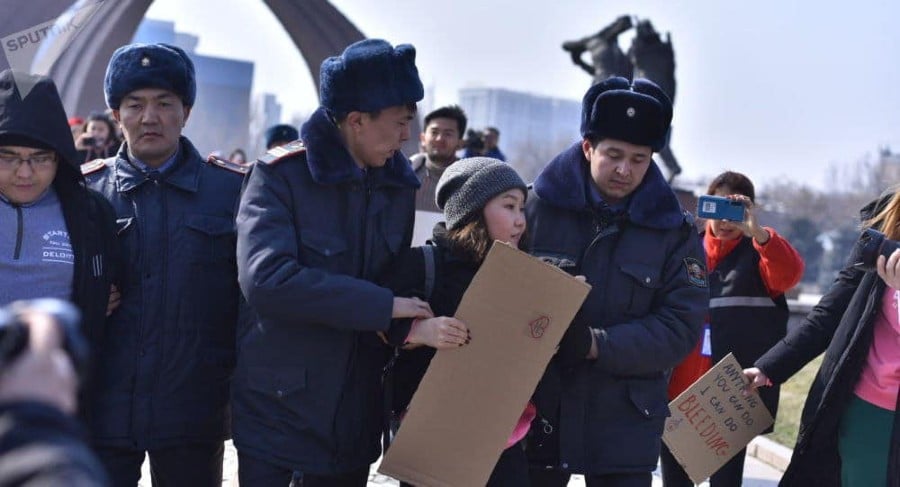
Are the protesters ok?
We are just starting to recover and collect information about the victims. A few people got bruises and sprains. We are inviting all the victims to the office to reflect on what happened, to find out who needs help, maybe psychological or legal support.
When they were jailed, what was the accusation?
Well, 6 people were accused of disobeying a lawful demand from the police to disperse. Firstly, there is no such requirement. Secondly, even if it were, it would be illegal, since we have the right to peaceful assembly and we are not obliged to notify the authorities of the assembly.
What do you plan to do next year?
This is an annual march and we should not be scared and leave this tradition. We march every year. And next year, not only feminist and women’s organizations, but other civic organizations and activists will join us, and we will demand that government bodies, the mayor’s office, and deputies also join in order to show their position regarding women’s rights in Kyrgyzstan.
How do you see the future of feminism in Kyrgyzstan?
In Kyrgyzstan, everything is very bleak, not only regarding feminism, but in general, regarding the basic rights of women and men. We are not moving forward. Violence against women is constantly growing, women are becoming increasingly marginalized, the level of education and culture is falling, and fertile ground is emerging for the growth of various religious movements and the flourishing of nationalist sentiments. It is very difficult in such conditions to predict anything, but the hope is that we will reach the bottom and realize that everything is very bad there, and go up.
Do you think it would be possible to bring feminism to poor women in Kyrgyzstan living in rural areas?
We constantly think about it. How to get to women in the countryside. We have partners in Osh, this is the southern and very conservative part of the country. They tell us that they’re even afraid to call themselves feminists, because it’s not safe. This year they were also not allowed to march; they were intimidated by the city hall and the police. They were literally threatened: The authorities said if you go out on a march we will talk hard.
But on the other hand, in the era of mobile phones and affordable Internet, when news spreads in minutes, you can achieve very good results with much less effort. We made one march last year so that everyone knows what feminism is and at least went to google the meaning of that word. This year, they saw that violence against women is not right, that women march against this violence, and learned that everyone has the right to freedom of peaceful assembly. Of course, in parallel with us, work is underway on the other side, which promotes other values, and they have many more resources and power.
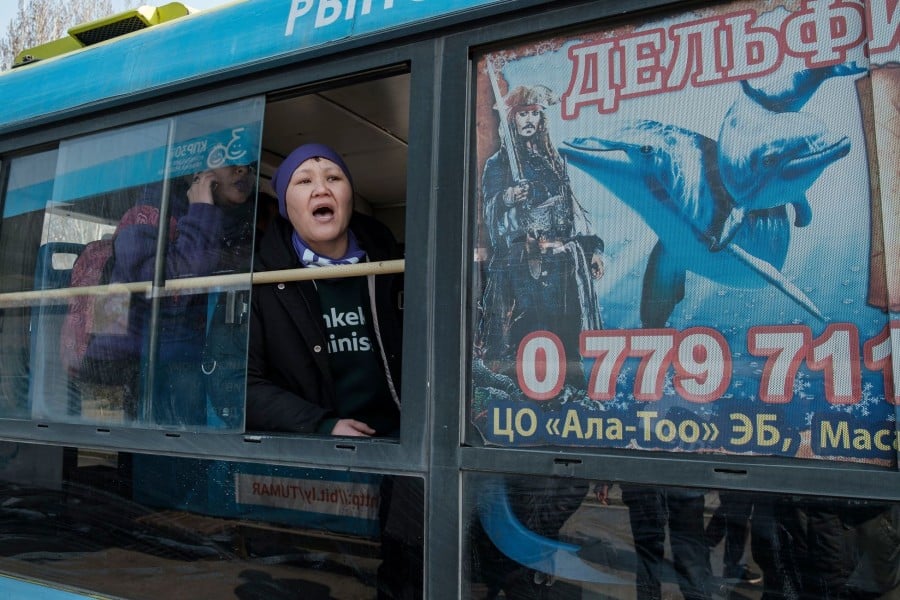
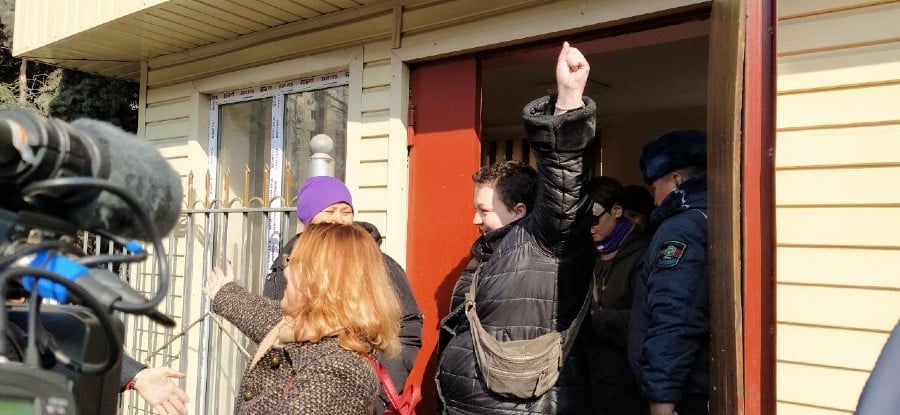
Photo: The moment of police’s intervention on 8th March 2020 in Bishkek (photo: Guliaim Greeny)
The Barricade is an independent platform, which is supported financially by its readers. Become one of them! If you have enjoyed reading this article, support The Barricade’s existence! We need you! See how you can help – here!
